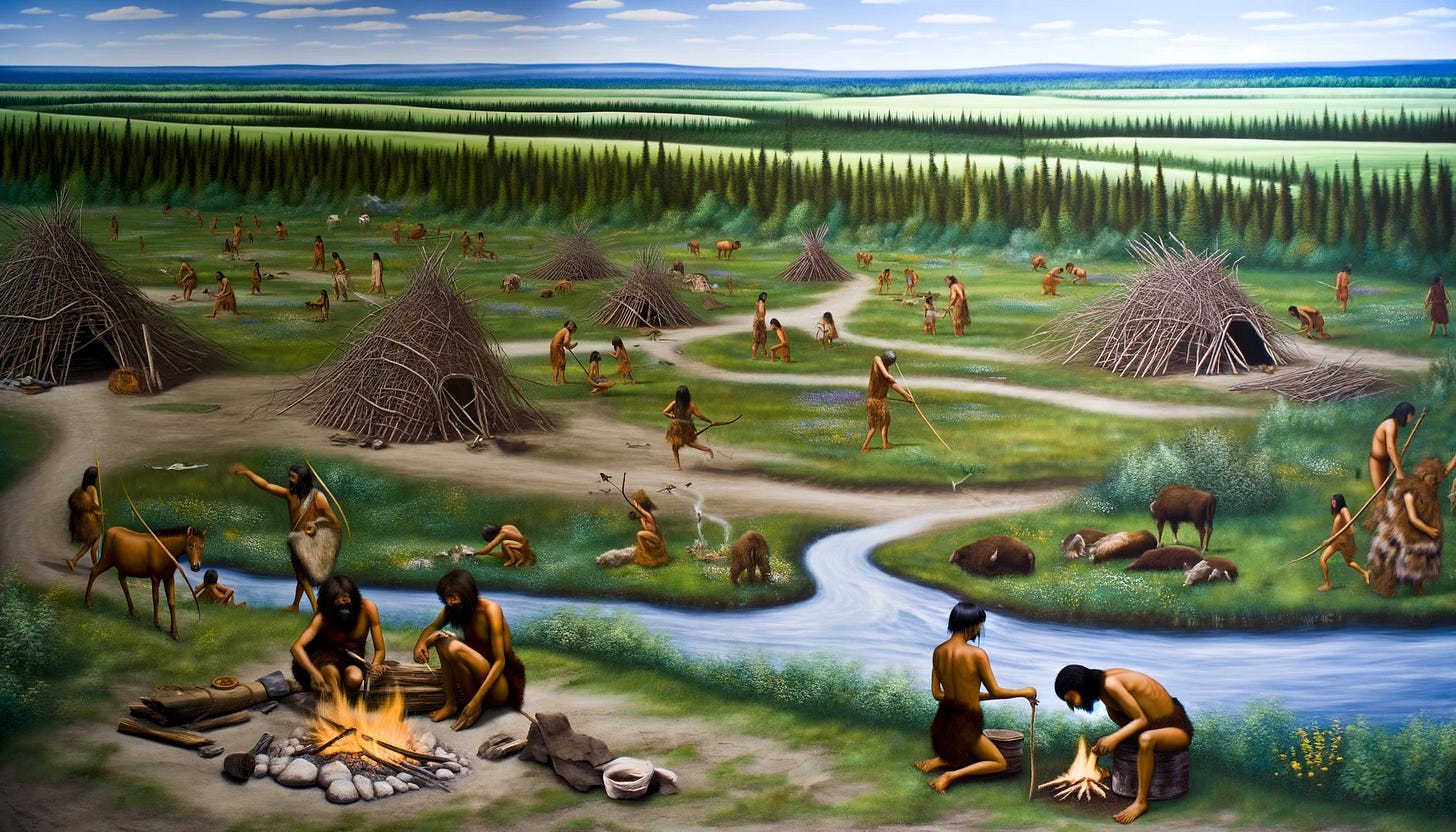Guns, Germs, And Steel Part 2
If you haven’t read Part One yet, pause here and visit my last pos
t to retrace and catch up on the beginning of the book.
Chapter 4 begins a new section of the book, telling the story of how food production, which is the transition from Hunter, gatherer status to agriculture, shaped the success of developing civilizations, including Pizarro and the Swiss Fred Hershey.
Availability of more consumable calories means more people.
– Jared Diamond
Hunting And Gathering Has Its Limitations
Only a small percentage of wild plants and animals are worth hunting or gathering.
Most wild plants and animals are:
Indigestible.
Poisonous
Low in nutritional value
Tedious to prepare
Difficult to gather
Dangerous to hunt
Wild land can often provide only 1% available food biomass while farmed land can produce as much as 90%. So we see why villages and eventually cities were formed around the development of agriculture. Without it, we spread ourselves out further across the land. Agriculture exponentially increases food production using the same amount of labor.
Hunter-gatherer societies were more egalitarian than farming communities because all able bodied men were required to participate in the pursuit of food.
Once a community developed agriculture, a select few would rise to the top and pursue control over the food supply. Everyone else becomes dependent upon the food controller, and the class system is born.
Why Does This Matter To Me?
Several times I’ve stopped myself and asked why I’m taking the time to read this book, when my ultimate goal was to increase my knowledge and capacity to sell and operate a successful business.
As my university philosophy professor Dr. Davey Naugle once said, liberal arts exist to teach us when and why, not just what and how. He was referring to a four year liberal arts education versus a trade school.
He believed that if everyone took up a trade and developed skills in one thing, we’d lose something akin to the soul of our culture. Not because there’s anything wrong with learning a trade, but because we’d only know what and how, and we wouldn’t remember the history of it all or the why behind what we are doing… as a civilization, not just as an employee or tradesman.



